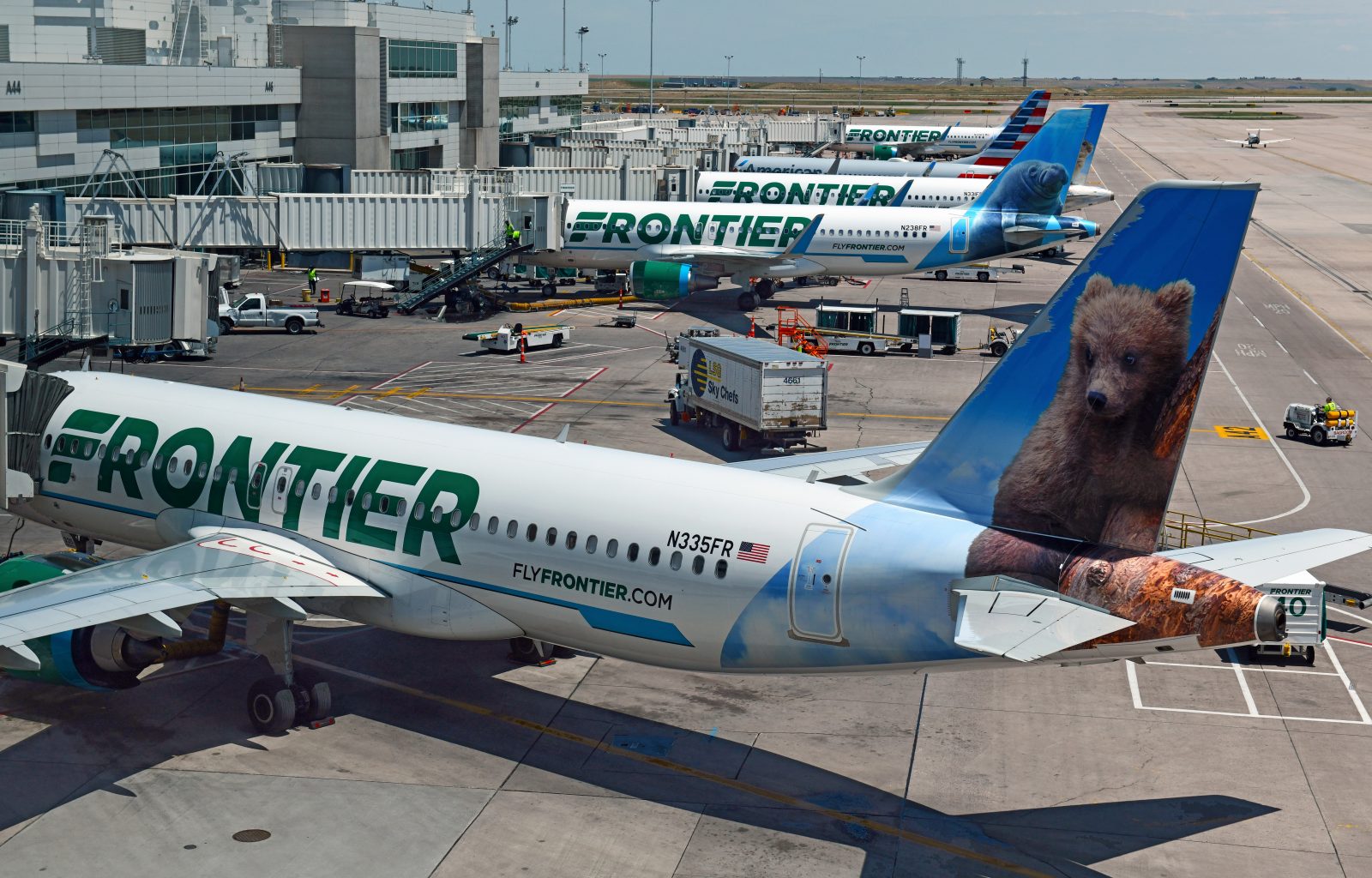
Flight attendants at budget carrier Frontier Airlines say plans to drastically shift its operational strategy by reducing the number of overnight layovers by as much as 90% constitutes a ‘major dispute’ that will leave them out of pocket and facing economic hardship.
Having failed to report a profit in three of the last four quarters, Denver-based Frontier is embarking on a major turnaround program that will see the low-cost airline shift from primarily leisure-focused destinations, especially in Florida, in favor of traditionally ‘high fare’ markets.
Chief executive Barry Biffle has blamed Frontier’s recent woes on over-saturation in popular leisure markets, especially when the carrier is competing with other low-fare airlines like Southwest, JetBlue and Spirit.
Biffle wants Frontier to go head-to-head with legacy carriers like Delta and United and is adding new products to attract higher spending customers, like a European business class seating arrangement where the middle seat in a standard row of Economy seats is blocked.
Alongside Frontier’s destination and product revamp, however, are plans to reinvent the way the airline utilises its aircraft with the aim of returning aircraft to their base every night – the so-called ‘turn’ strategy that is favored by budget carriers across Europe.
The Association of Flight Attendants (AFA-CWA), which represents crew members at Frontier, however, says shifting to a turn strategy will require renegotiating a contract with its members because the current collective bargaining agreement is not designed for this type of business model.
Traditionally, flight attendants get paid based on how much time they spend flying, as well as how much time they spend away from home. The current agreement rewards flight attendants who work longer trips in which they can spend several days away from home, visiting different cities each night.
“This is a gross example of corporate greed,” slammed Sara Nelson, president of the flight attendant union on Wednesday.
“Management’s turn plan is shifting corporate costs including hotel and transportation directly onto individual Flight Attendants. If Frontier wants to make these changes, they MUST negotiate to reflect the completely new business model,” Nelson continued.
The union has written to Frontier management saying that they believe the new business model constitutes a major dispute under the Railway Labor Act and, as such, requires new negotiations outside of normal contract talks.
In Europe, budget airlines highlight the ability to return to base every night as a benefit which is especially popular amongst flight attendants with young families or people who want to maintain a social life at home.
But Nelson explains that the vast majority of Frontier’s flight attendants commute, either by air or car, more than 90 miles to their base airport. Finishing work at their base every night will simply mean that they have to spend more time in hotels at their own expense.
Rather than meaning Frontier crew members can spend more time with their families, the union argues that turnaround flying will mean “more nights away from families as the turns reduce commuting opportunities at the start or conclusion of work assignments.”
There could also be major tax implications, as per diem on one-day trips is taxed, whereas per diem on multi-day trips isn’t taxed because flight attendants are classed as being away from home.
“This change will drastically upend Frontier Flight Attendants’ lives and it’s only going to get worse,” commented Jennifer Sala, AFA Frontier President. “Management must negotiate immediately to ensure its front-facing workers are not shouldering the cost of the entirely new operational structure.”
Related
Mateusz Maszczynski honed his skills as an international flight attendant at the most prominent airline in the Middle East and has been flying ever since... most recently for a well known European airline. Matt is passionate about the aviation industry and has become an expert in passenger experience and human-centric stories. Always keeping an ear close to the ground, Matt's industry insights, analysis and news coverage is frequently relied upon by some of the biggest names in journalism.








Southwest is NOT a low fare carrier.